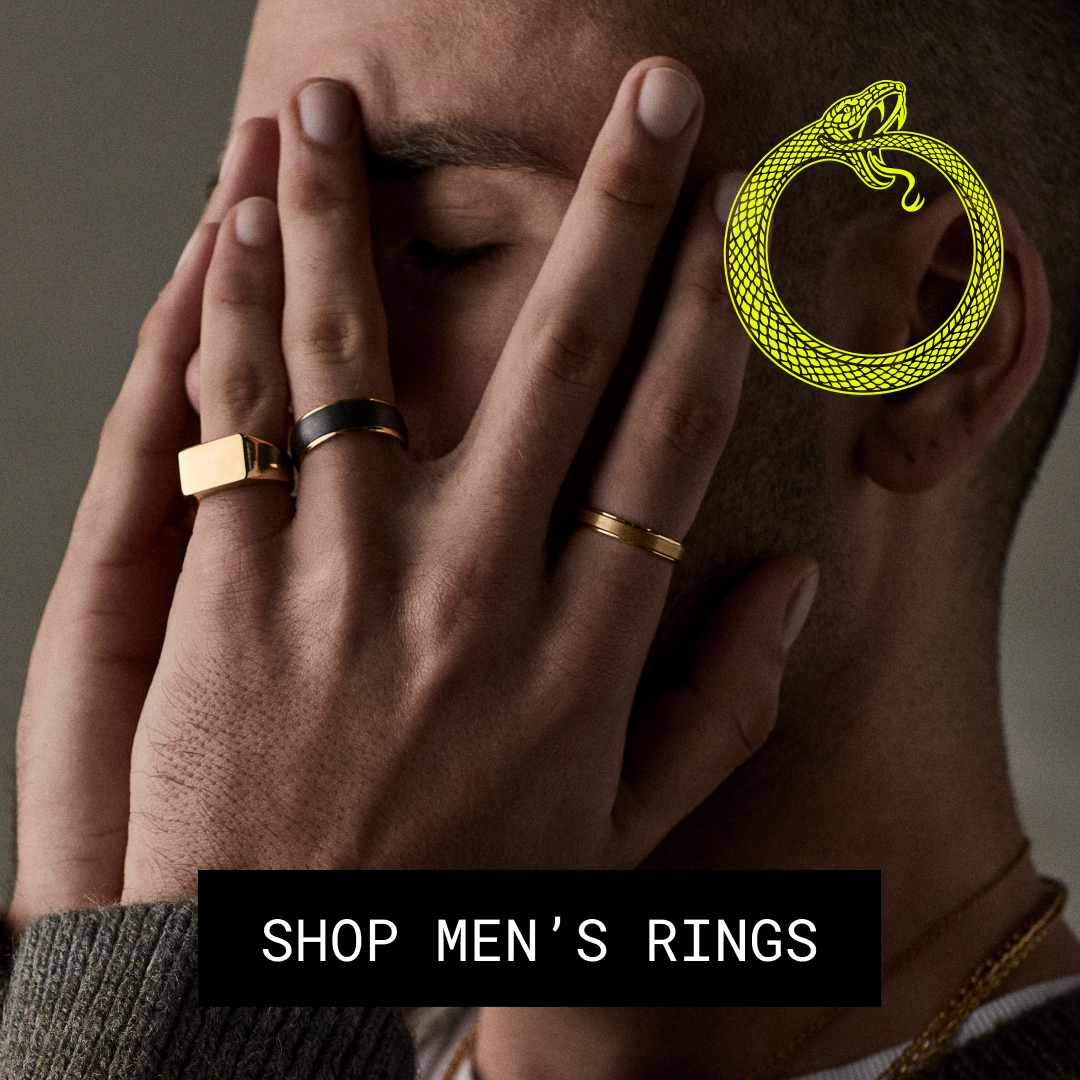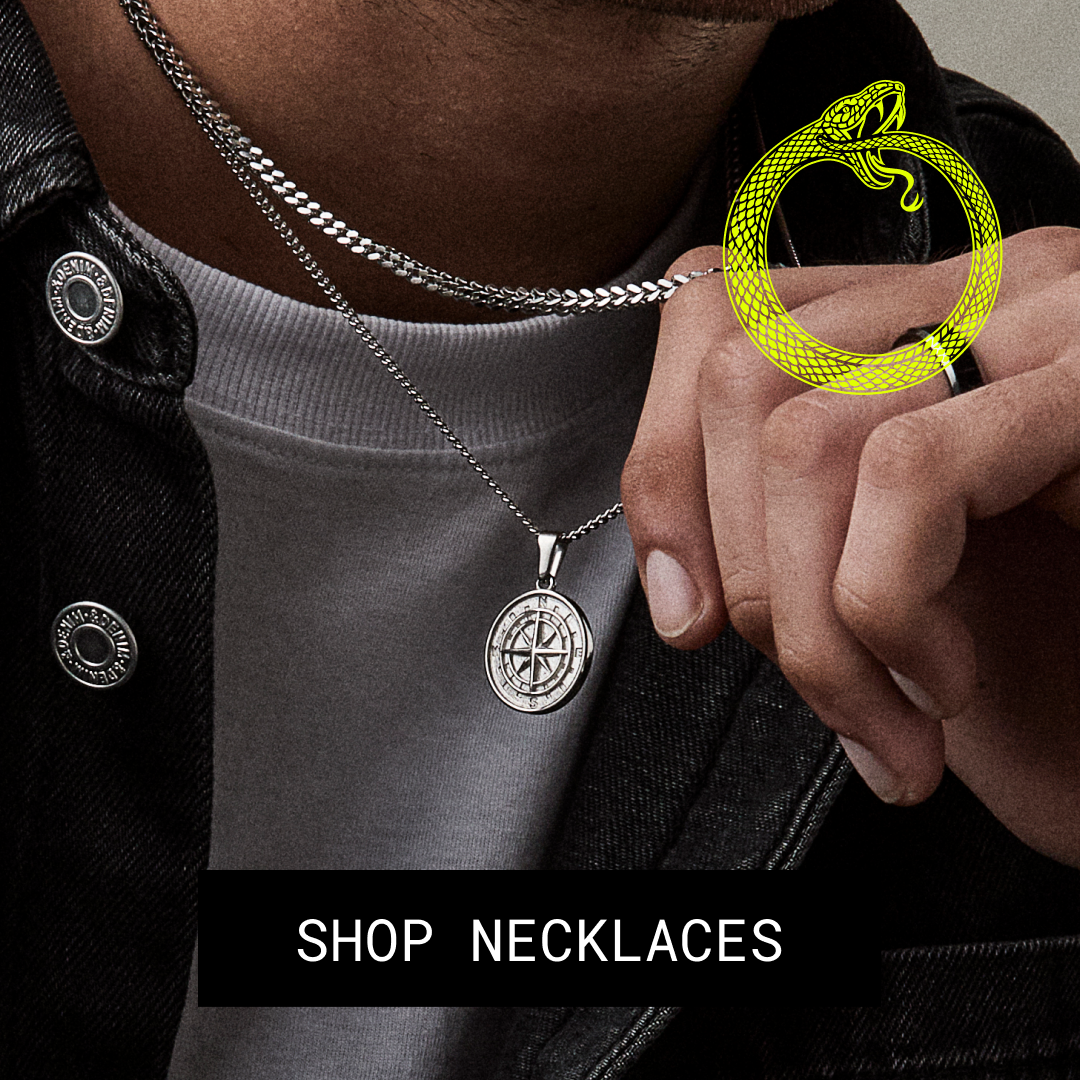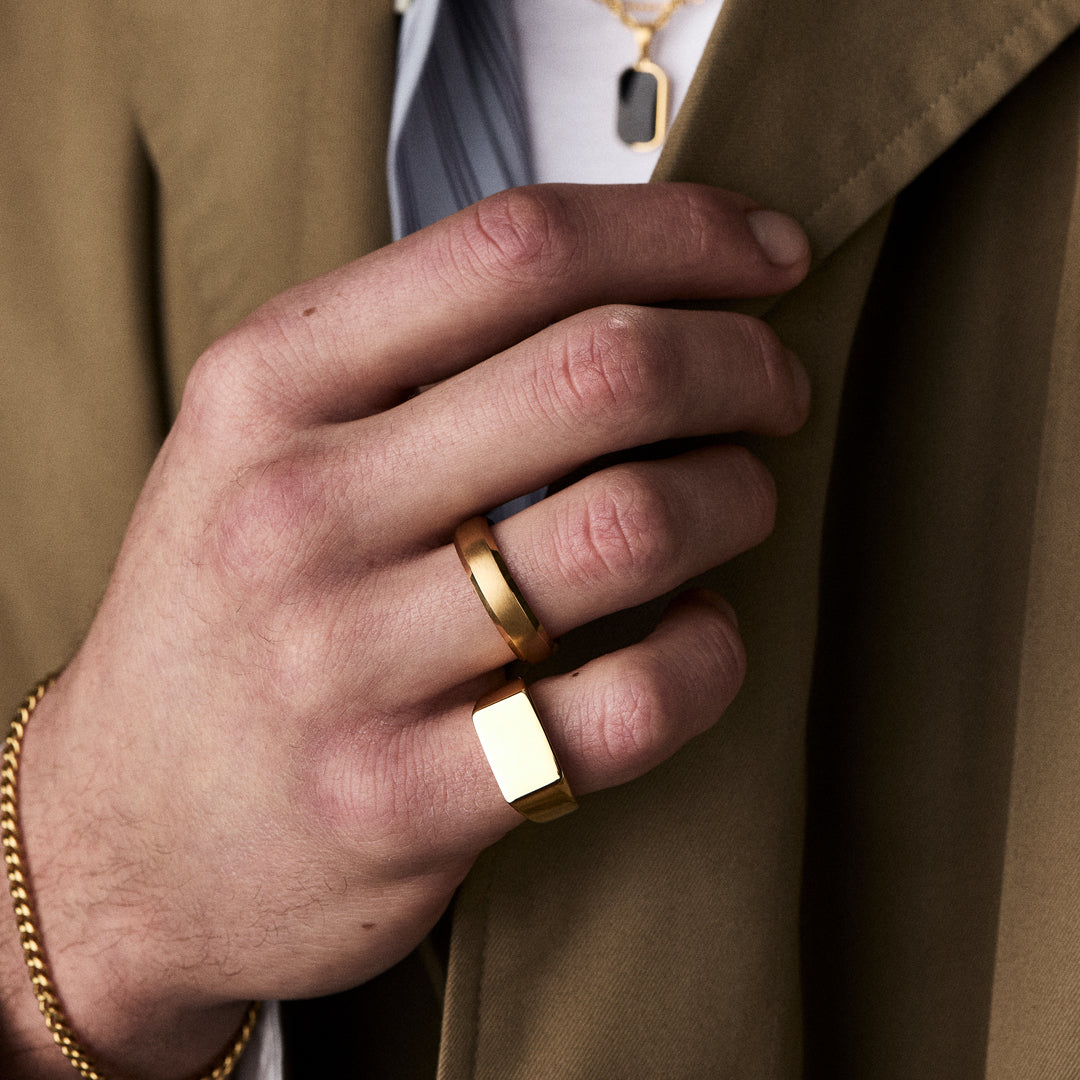In order for a ring to be great, it needs to cover a few important bases. It needs to be stylish and in-fashion, it needs to be comfortable, it needs to be well made and finished, but almost above all – it needs to be durable as hell.
This is because rings are usually a long-time purchase. In the case of wedding bands, they’re a ‘forever purchase’ (fingers crossed). So slapping on a burger ring and calling it a day doesn’t usually cut it. But what is the best ring material for everyday wear? And how are you meant to know until after you’ve worn it for a year and it’s already dinged up?
We’ve created this handy little blog to answer both of those questions and more. Read on for the good stuff.
Key Takeaways
-
Different ring materials excel in different aspects of durability, including hardness, corrosion resistance, and toughness — no single material is perfect in all areas.
-
Tungsten is the hardest and most scratch-resistant option, while titanium and black zirconium offer excellent corrosion resistance and a strong balance of strength and flexibility.
-
Titanium provides the best lightweight durability, making it ideal for active lifestyles, whereas tungsten delivers unmatched hardness but can be brittle under extreme force.
-
Black zirconium offers strong durability with a modern aesthetic, combining scratch resistance, corrosion resistance, and comfort.
-
Choosing the right ring material depends on your daily environment and lifestyle, whether you need maximum scratch resistance, lightweight comfort, or all-weather durability.
Understanding Ring Durability
When people ask about ring durability, they really want to know about what is the best men’s ring material for them.
Understandably, there is some debate around this because it comes down to more than just “what ring material scratches least if I bang it continuously with a hammer”. The answer to that is tungsten by the way, so you can stop reading if that’s all you’d like to know!
Ring durability isn’t just about scratch resistance. Other factors like how well a ring stands up to daily wear, its ability to resist corrosion, and how it handles being out in the big bad world are all relevant parts of the debate.
The Most Durable Ring Materials
So what are the most durable ring materials? Here are a few ways that we can rank metals for their durability.
Hardness
You may have heard of the Mohs Hardness Scale before. This scale is the go-to for measuring how hard a material is, with diamond sitting at the top at a perfect 10, and every other material on earth sitting somewhere below that. You can see where each of the ring materials that we sell at ETRNL sit on this scale – from hardest to softest:
|
Material |
Mohs Hardness |
|
Tungsten |
8-9 |
|
Black Zirconium |
7.5 |
|
Tantalum |
6.5 |
|
Titanium |
6 |
|
Damascus Steel |
6-7 |
|
Stainless Steel |
5-6 |
|
Gold |
2.5-3 |
|
Wood |
Varies (1-2) |
|
Silicone |
~0.5-1 |
Corrosion Resistance
Corrosion resistance matters if you spend a lot of time outdoors or work with your hands. We don’t have a scale that’s quite as black and white for corrosion resistance. But as a general guide, alloys (metals that are combined together) and materials with passivation (those that form a corrosion-resistant oxide layer around them) tend to perform very well in this category. Titanium and stainless steel do very well in this category.
Toughness
This isn’t the same thing as hardness (confusing, I know). A material can be super hard but also brittle. A tough material is able to be hit, dropped, and generally abused into being bent out of shape without breaking. Gold is an example of a material that is happy to bend but is very hard to actually break.
No material ticks every box perfectly, so we’d suggest just thinking about the kind of use your ring will be getting day-to-day.
Tungsten: Unmatched Strength
When it comes to ring materials, tungsten is a proper bruiser. It’s worth noting that this metal is the material of choice for armour-piercing tank rounds – so you can rest assured that it’ll be able to handle your daily activities.
For hardness, tungsten is the king of the ring world. With a Mohs hardness of 8-9, it's one of the hardest materials available for jewellery, meaning it’s practically scratch-proof in everyday situations (unless you work with diamonds).
For corrosion resistance, tungsten holds its own, though it’s not quite as resistant as materials like titanium or stainless steel. However, with proper care and avoiding exposure to harsh chemicals, your tungsten ring will hold up just fine against the elements.
Toughness is the area where tungsten does have its drawbacks. While incredibly hard, tungsten can be brittle. But when we say brittle, it’s not going to break from a simple drop. If your tungsten ring is ever hit hard enough to break—you’ll be much more concerned with the finger it was on than the ring!
Black Zirconium: Striking and Durable
Black zirconium is a fan favourite not only for its striking appearance but also for its durability.
If we’re talking about hardness, black zirconium is right up there. With a Mohs hardness of 7.5, black zirconium sits comfortably on the tougher side of the scale, meaning it’s resistant to all sorts of everyday scratches and wear.
When it comes to corrosion resistance, black zirconium excels. Much like titanium, it forms an oxide layer that protects it from corrosion, rust, and tarnish, meaning you won’t have to worry if it gets wet or exposed to the elements.
Toughness is where black zirconium really shines. Unlike some harder materials that can be brittle, black zirconium has a good balance of strength and flexibility, meaning it can take plenty of knocks without shattering or breaking. It’s also worth mentioning that Black Zirconium is quite a bit lighter than its beefier cousin, tungsten.
Titanium: One Ring To Rule Them All?
If you’ve ever picked something up that is made of titanium, you’ve probably been amazed at how light it is—especially how famously strong it is. Titanium rings feel like you’re wearing nothing at all, so they’re the go-to ring for people who don’t want to feel weighed down.
When it comes to hardness, titanium sits at around 6 on the Mohs scale, making it highly resistant to scratches and dents in most everyday situations. It’s not as hard as tungsten but it can certainly be knocked around a bit.
Titanium is a superstar of corrosion resistance. It forms a protective oxide layer that prevents rust and tarnish, which is just one of the reasons it’s often used in industries like aerospace and marine engineering. If you’re regularly outdoors or in humid environments, titanium is a no-brainer.
Titanium is tough too. If for some reason your titanium ring is dropped from a great height or run over, it can bend, but it won’t break. If you’re wondering if titanium is a good ring material—we’d say it’s an excellent ring material.
Choosing the Right Material for Your Lifestyle
Looks aren’t all that matters when you’re picking a ring—it’s about finding a material that slots in nicely with your day-to-day life.
If you’re hands-on at work, tungsten and titanium are great options. Tungsten is super scratch-resistant, while titanium gives you strength without the weight.
For outdoor lovers or those in humid environments, titanium and stainless steel are highly resistant to corrosion and require minimal upkeep. Want a bit more style with that durability? Black Zirconium offers a sleek, scratch-resistant option that's lighter than tungsten.
And if you prefer something classic and flexible, gold is timeless, though it may need more care and maintenance over the years.
Caring for Your Durable Rings
Like people, even the toughest rings need a little TLC to stay at their best.
To keep your ring in top shape, clean it regularly with mild soap and water, then dry it with a soft cloth.
Tungsten, titanium, and stainless steel are low-maintenance, but it’s always a good idea to avoid harsh chemicals wherever you can. For Black Zirconium and gold, a little extra care—like polishing and avoiding prolonged exposure to chemicals—will keep them shining. When not wearing your ring, store it in a soft pouch or box to protect it
If you’ve made it this far, you’ll know by now that the best ring material for everyday wear varies depending on your usage. This also probably goes without saying (we’re going to say it anyway), but you’ll find all of the above materials—plus a whole lot more—in our selection at ETRNL Rings. Check us out today.





